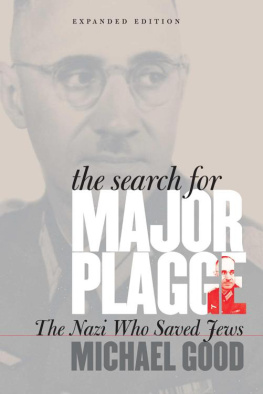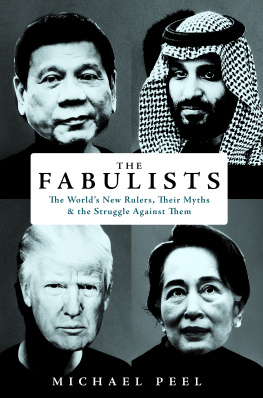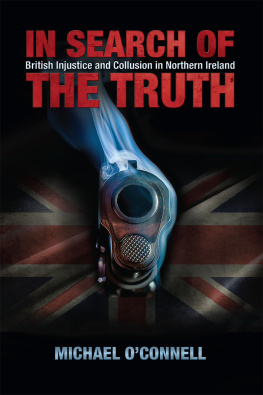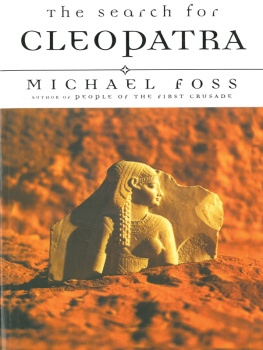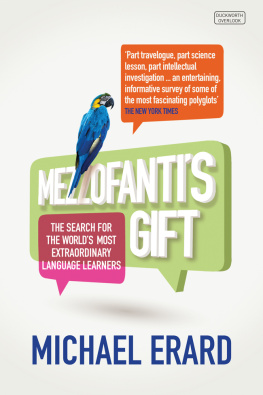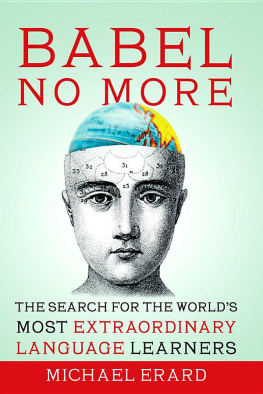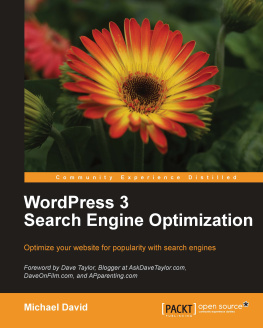Michael Good - The Search for Major Plagge
Here you can read online Michael Good - The Search for Major Plagge full text of the book (entire story) in english for free. Download pdf and epub, get meaning, cover and reviews about this ebook. year: 2009, publisher: Fordham University Press, genre: Home and family. Description of the work, (preface) as well as reviews are available. Best literature library LitArk.com created for fans of good reading and offers a wide selection of genres:
Romance novel
Science fiction
Adventure
Detective
Science
History
Home and family
Prose
Art
Politics
Computer
Non-fiction
Religion
Business
Children
Humor
Choose a favorite category and find really read worthwhile books. Enjoy immersion in the world of imagination, feel the emotions of the characters or learn something new for yourself, make an fascinating discovery.
- Book:The Search for Major Plagge
- Author:
- Publisher:Fordham University Press
- Genre:
- Year:2009
- Rating:5 / 5
- Favourites:Add to favourites
- Your mark:
- 100
- 1
- 2
- 3
- 4
- 5
The Search for Major Plagge: summary, description and annotation
We offer to read an annotation, description, summary or preface (depends on what the author of the book "The Search for Major Plagge" wrote himself). If you haven't found the necessary information about the book — write in the comments, we will try to find it.
The Search for Major Plagge — read online for free the complete book (whole text) full work
Below is the text of the book, divided by pages. System saving the place of the last page read, allows you to conveniently read the book "The Search for Major Plagge" online for free, without having to search again every time where you left off. Put a bookmark, and you can go to the page where you finished reading at any time.
Font size:
Interval:
Bookmark:

 Copyright 2006 Michael GoodAll rights reserved. No part of this publication may be reproduced, stored in a retrieval system, or transmitted in any form or by any meanselectronic, mechanical, photocopy, recording, or any otherexcept for brief quotations in printed reviews, without the prior permission of the publisher.Library of Congress Cataloging-in-Publication DataGood, Michael, 1957The Search for Major Plagge: the Nazi who saved Jews / Michael Good.Expanded ed.p. cm.Second editionT.p. verso.Includes bibliographical references and index.ISBN-13: 978-0-8232-2441-8 (pbk.: alk. paper)ISBN-10: 0-8232-2441-4 (pbk.: alk. paper)1. JewsPersecutionsLithuania. 2. Holocaust, Jewish (19391945)LithuaniaPersonal narratives. 3. Good, William Z. 4. Good, Pearl. 5. Plagge, Karl, 18971957. 6. Righteous Gentiles in the HolocaustGermanyBiography. 7. Good, MichaelCorrespondence. 8. LithuaniaEthnic relations. I. Title. II. Title: Search for Major Plagge.DS135.L5G662 2006940.53 1835092dc222006027866Printed in the United States of America08 07 06 5 4 3 2 1Second edition For my parents, William and Pearl Good, whose ability to remember without bitterness and whose appreciation of their own good fortune
Copyright 2006 Michael GoodAll rights reserved. No part of this publication may be reproduced, stored in a retrieval system, or transmitted in any form or by any meanselectronic, mechanical, photocopy, recording, or any otherexcept for brief quotations in printed reviews, without the prior permission of the publisher.Library of Congress Cataloging-in-Publication DataGood, Michael, 1957The Search for Major Plagge: the Nazi who saved Jews / Michael Good.Expanded ed.p. cm.Second editionT.p. verso.Includes bibliographical references and index.ISBN-13: 978-0-8232-2441-8 (pbk.: alk. paper)ISBN-10: 0-8232-2441-4 (pbk.: alk. paper)1. JewsPersecutionsLithuania. 2. Holocaust, Jewish (19391945)LithuaniaPersonal narratives. 3. Good, William Z. 4. Good, Pearl. 5. Plagge, Karl, 18971957. 6. Righteous Gentiles in the HolocaustGermanyBiography. 7. Good, MichaelCorrespondence. 8. LithuaniaEthnic relations. I. Title. II. Title: Search for Major Plagge.DS135.L5G662 2006940.53 1835092dc222006027866Printed in the United States of America08 07 06 5 4 3 2 1Second edition For my parents, William and Pearl Good, whose ability to remember without bitterness and whose appreciation of their own good fortuneopened a world of discovery for their American son. I believe that the time has come for all right-minded, well-disposed people to extend their hands to each other across national boundaries to form a community of the solitary among the nations. For whoever seeks truth and justice nowadays remains solitary in the midst of a blind multitude crying for power and violence. Karl Plagge CONTENTS PREFACE TO THE SECOND EDITION More than seven years have passed since I first traveled to Vilnius, Lithuania, during the summer of 1999 and began what would be a life-changing journey in search of the mysterious German officer who saved my mothers life. During these years of exploration, as I tried to uncover the motivations and deeds of Karl Plagge, I have often wondered how many of the Jews and Germans whose lives intersected at the HKP workshops in Vilna between 1941 and 1944 have still remained hidden from historys view. Since the publication of the first edition of this book, I have had the opportunity to hear from new groups of HKP survivors and also from a German veteran of Plagges unit, a man who had not talked about his wartime experiences outside of the family for more than sixty years. I am very happy to be able to share their remarkable stories in this new edition.Reading through the first seven chapters of The Search for Major Plagge in the first edition, one cannot help but wonder about the role of the men of Plagges unit in the unusual events that transpired under the guise of repairing Wehrmacht vehicles in Vilna, Poland, during World War II. There were more than two hundred fifty officers and enlisted men in this unit, HKP 562, and it is clear from the testimony of Plagges subordinates at his 1947 denazification trial that some of the officers knew that many of the Jews employed in their workshops were not the essential skilled workers that Plagge had certified them to be. How many men within the unit understood that their commander was trying to thwart the efforts of the SS and save Jewish enemies of the state? Given the widespread anti-Semitism in Germany and the large measure of popular support enjoyed by the Nazi regime during the 1930s and early 1940s, one naturally wonders why Plagge was not denounced. With the discovery of Alfons von Deschwanden, a veteran of Plagges unit who spent three years in the HKP workshops in Vilna from July 1941 until the German retreat in July 1944, we have been given the opportunity to see the world through the eyes of a young German draftee thrust into the midst of the Holocaust in Vilna. Due to the willingness of this aging veteran to break years of silence, and with the help of his daughter who translated my inquiries, we are able to explore a myriad of fascinating questions. What did an average Wehrmacht soldier understand about the genocide being carried out in Vilna? When did he discover the murderous nature of the Nazi regime? What did he understand about his commanders attitudes toward the Jewish slave laborers? What moral dilemmas did he personally face? With this new testimony we are able to view the Holocaust in Vilna through the eyes of a German soldier and ponder in more detail what actions were possible in resisting the madness that prevailed during those terrible years.Through the course of my original search I interviewed more than a dozen Jewish HKP survivors; however, there were undoubtedly more whom I had yet to encounter. After Vilna was liberated by the Red Army on July 13, 1944, the HKP survivors scattered across the globe. Most of the camps surviving children remained unidentified over the decades that followed. What details and stories did they have to tell that would help us understand the lifesaving events that led to their miraculous survival? Over the past two years I have had the good fortune to meet several new HKP survivors, and with the publication of this second edition I am able to share new material that has come to light. These new stories, like those of my original search, will, I hope, allow readers to once again ponder humanitys dual natureour propensity to act violently out of fear and bigotry, juxtaposed against our often unexpected capacity for acting with nobility and moral courage. It is this dual nature of man that I hope many will continue to think about; perhaps these stories of good and evil from Vilna will help illuminate for future generations the path that leads away from the horrors of war and genocide and toward that better side of human nature which we must all struggle to reveal within ourselves.Michael Good
July 2006 I
An American Awakening INTRODUCTION On a warm spring day in June of 1999, I stood in the courtyard of the Heeres Kraftfahr Park (HKP) labor camp in Vilnius, Lithuania. Flanking the courtyard were tall buildings that had once housed over 1000 Jewish workers and their families, all slave laborers for the German war effort. I listened as my mother told the story of how she and her parents had survived the Holocaust, unlike so many other members of our family. She explained that her survival was largely due to the efforts of the German Army officer in charge of the HKP camp, a certain Major Plagge. He was better than Schindler! she exclaimed as she told how Major Plagge had protected his prisoners from the murderous intent of the SS.I had traveled to Lithuania with my parents, wife and teenage children to see our city of origin, to hear of all those who were lost during the war and to retrace my parents tales of survival during the Holocaust. As I pondered the miracle of my familys existence, I asked my mother what had become of this German major. No one knows, she replied. Plagge had left Vilna with the retreating Germans in July 1944 and vanished into the chaos of the final months of the war. No one had heard of him since.Squinting in the bright sun as I listened to my mother that morning, I had no idea what was beginning. I thought I had reached the pinnacle of our family journey, overcoming my fears of facing history, and then organizing my family to fly across the globe in search of a distant time and place. I could never have guessed that hearing my mothers story would mark a beginning, not an ending.It had taken a long time to get to that courtyard in Vilnius. Growing up in Southern California during the 1960s, the last thing I was interested in was exploring my European roots. What I wanted more than anything else was to be a regular American. My parents were from another realm, another planet really. In their thick European accents, they told stories of their youth, filled with dark tales of war and genocide. As a child, it seemed to me that my parents had come from a vicious, ancient place filled with Nazis, concentration camps and dead Jews. These were all things that I wanted desperately to escape from. Like many children of immigrants, I was determined to leave the world of my parents behind as I strode into my American future. I was actually quite successful in this endeavor. Backyard swimming parties and little league baseball led to high school plays and senior proms. College led to medical school, which carried me to marriage, children, and work as a family physician. I was the immigrants son who had fulfilled his parents dreams of what a better life in a new land should be.Yet over the years, flickering images of the past would intrude on my American paradise. These episodes began soon after I started to build my new family in Connecticut. One day in 1994 I was talking to my friend Vera Schwarcz, a professor of history at Wesleyan University and a daughter of Holocaust survivors herself. We were discussing my reluctance to involve my young family in the local conservative Jewish congregation. I was worried they might reject my children and me because my wife Susan was not Jewish. Looking at me, Vera said softly, You are wrong, Michael, your avoidance has nothing to do with Susan. It is because of the Holocaust. Your soul understands what dangers the world presents to Jewish children. This statement left me dumbstruck. I had lived all my life in the United States, suffered virtually no anti-Semitism, and could not imagine that I was unconsciously paralyzed by my parents history. Yet as I talked with Vera, tears streamed down my face. Given the force with which her words struck me, I knew that there must be a large measure of truth to what she said.Then there was the family tree. After medical school, I had married Susan Possidente, an Italian-American woman of great beauty, talent, and insight. We had met at the University of Rochester where I was a medical student and she was writing her masters thesis in psychiatric nursing. Susan is the granddaughter of Italian immigrants, with a vast family of aunts, uncles, and cousins. As we dated, I was introduced to her relatives at the annual Possidente 4th of July picnic, a large event steeped in family history. Every year since 1946, when all four of her uncles had returned home safely from World War II, Susans family has gathered for a giant annual Independence Day picnic. There are usually over 130 relatives from four generations present. As a newcomer to these clamorous gatherings, I had considerable trouble figuring out which relative belonged to which branch of the family. To help me sort all of them out, I decided to catalogue the Possidente family tree using a computer genealogy program. This process proved to be quite helpful, both to me and to the other young men who had married into the family.Having completed my wifes genealogical tree, I decided to move on to my own family. Interviewing my parents, I gathered names, birth dates, places of birth, and stories of never seen relatives who had populated Russia, Poland, and Lithuania. There was my paternal great-grandfather Chone Gdud, a man of legendary strength who single-handedly picked up an entire tree that had fallen in the road after a group of Polish peasants had been unable to move it. There was my fathers Uncle Zelig, who had murdered his beautiful wife in a fit of jealousy when he caught her in an affair with another man. There was my mothers saintly Aunt Emma, who ran an orphanage and who tragically cared for her only son as he slowly died from an incurable heart infection. Then there were the pictures, faces from long ago: a picture of Uncle Kasriel (Zeligs brother) showed a man who was the spitting image of my own father; a photo of my mothers Aunt Rachel confirmed her reputation as being a vivacious beauty. A whole cast of vibrant and boisterous characters came alive as I collected names and stories for our family tree.When I assembled the information collected from both the Italian and Jewish sides of our family to show to my children, I was forcibly struck by the contrasting pictures. My wife has 56 first cousins. I, on the other hand, have no cousins. The color portraits on the Possidente side of the family are filled with people who are alive today. My side of the family tree is filled with old, faded, black-and-white pictures of people whom none of us have ever met. The Good side comes to a sudden halt in 1941, with lives and families cut short, branch after branch showing lines that do not continue. Alongside my parents, one can see that there were once numerous relatives, almost 80 strong. But a close look at the dates of death reveals the same story: almost everyone died between June 22, 1941, and July 13, 1944, in Nazi-occupied Poland.It was this memory of lives cut short, families murdered in the worlds greatest crime, that I had been trying to escape from for the first 40 years of my life. As a child my nightmares had always been the same: gray men in Nazi uniforms with SS insignia coming to catch me, chasing me, trying to kill me. I did not want my children to suffer from such dreams. As a father I could easily imagine the desperation my relatives must have experienced in those final days as they tried to find ways to save their children. Thoughts and dreams such as these had caused me to avoid looking squarely at the Holocaust and my own family history; it was too painful. Reading books, watching films, or hearing stories about the war always caused me overwhelming pain and anxiety as I realized that mankind could not have changed fundamentally in 40 years; it could happen again, it could happen to my family, my children. When this topic came up, I always turned away; better to concentrate on life here in the United States, where such thoughts and terrible images rarely intruded.Yet, I could not ignore my heritage and history. Staring at my family tree I could see that, even with so many lost, there were some that survived. What could we learn from the small tendrils of growth reaching down toward my childrens generation? There were my two parents, William and Pearl Good, who had survived. They had three children: my older brother Leonard, my twin sister Anne, and myself. There is a small group of second cousins in Mexico from my mothers side of the family and a similar group of distant cousins from my fathers family who set roots in Argentina. Thus, in addition to the myriad of Possidentes, Marcons, Lambertis, and Sebbens from the Italian side of the family, there are small groups of Jews: Gduds, Gersteins, and Goods all traveling toward the 21st century. I began to look more carefully at Holocaust survivors both from my family and from various friends families. My father had survived the war after escaping execution by the Germans and hiding in the forests surrounding Vilna with the help of local peasant families. My mother, her parents, and her cousins from Mexico were all survivors of the HKP labor camp; they credit Major Plagge with saving their lives. My step-grandmother, Gita Gdud, whose husband and two children died in the Vilna Ghetto, had been hidden by Catholic nuns after escaping from the Germans. When I thought about our Holocaust survivor friends and their tales of survival, I found similar themes. In addition to their stories of terror, each also had survival stories that inevitably involved three elements: luck, tenacity, and an act of kindness during a crucial hour of need. As a result of these acts, they did not perish and went on to rebuild lives after the war. After examining many survivors stories, I came to a new realization: that each Holocaust survivor represents a miracle of life and that almost all survivors owe their lives in small or large part to someone elses kindness, bravery, or courage. Thus, for many survivors of the Holocaust and their descendants, an examination of the war does not necessarily lead only to the bloody horrors that mankind is capable of; it can also point to the ultimate triumph of good over evil.With this newfound perspective, I found myself gradually able to look at the past without averting my eyes. This exploration led me to plan a trip to Vilnius with my parents and family. It was on this journey that I came to stand in the HKP camp courtyard, listening to my mother retell her story. As I listened, a host of questions began to form in my mind. Who was this Major Plagge? How exactly had he saved his workers lives? What had become of him after the war? Did his family know of his heroic acts during the war? Why did he, a staff officer of the Wehrmacht (German Army), work to save Jewish lives when his nation was committed to exterminating them? In trying to answer these questions, a new journey of exploration began, one that would lead from my home in Connecticut, through the Internet, traveling from New York, Montreal, and California to Hamburg, Frankfurt, and Darmstadt, Germany. This journey would eventually lead to answers about an amazing man who not only saved my mothers life, but the lives of more than 250 Jews during the Holocaust. On this journey I would discover a man whose story exemplifies the choice that humans have to select good over evil. 1 FAMILY JOURNEY Why would you want to take our children there?
Next page
Font size:
Interval:
Bookmark:
Similar books «The Search for Major Plagge»
Look at similar books to The Search for Major Plagge. We have selected literature similar in name and meaning in the hope of providing readers with more options to find new, interesting, not yet read works.
Discussion, reviews of the book The Search for Major Plagge and just readers' own opinions. Leave your comments, write what you think about the work, its meaning or the main characters. Specify what exactly you liked and what you didn't like, and why you think so.

